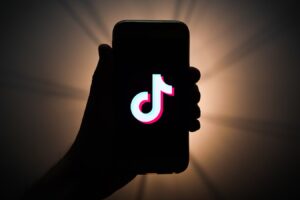
Everyone’s favorite short-video social media app, TikTok, seems to be causing some trouble in paradise.
Colleges and universities around the world, including Auburn University and the University of Oklahoma, have recently banned TikTok on their campus Wi-Fi networks in fear of the app presenting a national security risk.
ByteDance, the company that owns the immensely popular app, is a Chinese tech company that many politicians and government officials believe is sharing users’ information with the Chinese government.
In December, President Biden signed a bill that prohibited the use of TikTok on federally issued devices and state governments such as Virginia and South Carolina, followed suit enacting similar bans.
Jamaal Brown, a spokesman for the TikTok app, said in an interview with The New York Times that he believes these new bans will eventually affect universities negatively.
“We’re especially sorry to see the unintended consequences of these rushed policies beginning to impact public universities’ ability to share information, recruit students and build communities around athletic teams, student groups, campus publications and more,” Brown said.
Jacob Pumphrey, a first-year business administration student at FAMU, agrees with the idea of TikTok impacting universities positively.
“I believe TikTok has brought FAMU a lot of notoriety from what other students have posted whether it was from homecoming or other events … i t kind of gives us a way to display and reach more students,” Pumphrey said. “It gives them another outlet to see the positive environment that we have on campus.”
Twenty-eight other colleges and universities in Georgia have also begun prohibiting TikTok on university devices and networks. Closer to home, the University of Florida has also begun to consider banning TikTok from computer networks on campus.
Is Florida A&M University next? Earlier this week, members of the Florida Board of Governors — the body that oversees FAMU and the state’s other 11 public universities — agreed that new regulations for TikTok should be put in place statewide.
Jasen Lovince, a third-year health science student at FAMU, said that if FAMU banned TikTok it would be a tragic experience for him.
“TikTok is another search engine. It allows us to gain knowledge about certain topics we didn’t know much about. TikTok has taught me how to cook, tie a tie, and help with my struggling subjects,” Lovince said. “I think TikTok is beneficial for students.”